If you're looking for a generator, choosing the right generator is very important. Depending on how you will use your generator, there are different categories to meet your needs. This can include recreation, home standby and construction. The right generator size is the one that is correctly matched to power all the tools / appliances you want to run at the same time. If you purchase a generator that is to big it will not only be more expensive, but will not run as efficiently as the a correct size generator would. On the other hand if the generator is too small, some of your equipment may not give it maximum output, and therefore its lifespan is reduced.
Where to start...
You can make your generator selection easier, by working out the answer to these main factors..
How do you plan to use the generator?
- Camping & Outdoors - Stable electricity you can take anywhere
- Home & Office Backup - For running household items or computers etc at the office
- Construction & Emergency - Reliable power for demanding tasks
- Hospitality & Leisure - High quality electricity you can count on
You have to work the amount of watts that the tools / appliances you’ll be running use, and remember that with some appliances or tools the number wattage that is listed on the appliance is not an exact representation of the amount that it takes to run it. For instance, a 900w microwave simply means that’s how much power the microwave itself puts out. The key point to remember is that a appliance will always require more power to run than the amount of power it puts out.
You need to figure exactly how much wattage your appliances require, look at the data tag by the manufacturer. This is the tag on the unit that lists volts, amps, horsepower, cycles, phase, etc. Most often, appliances list their power consumption in amps rather than in watts. In order to get the watts the device requires to run you simply multiply the number of amps by the number of volts it lists.
Another factor you will need to calculate is the starting wattage. What this means is that some appliances, such as those that contain an electric motor, require more watts to start up than to actually run. These include refrigerators, air conditioners, power tools, air compressors, bore pumps to name a few. To calculate the starting watt requirement, with most appliances it is generally 2 to 3 times more than the running watt requirement.
Make a list of all the appliances / tools you wish to run at the one time, and once you have compiled an accurate list of what you will be operating, you can calculate the maximum power requirements.
How quiet does your generator need to be?
If planning a camping or caravanning trip, a quiet generator is a must, many parks around Australia have regulations that a generator is used must be under a certain decibel rating. You will find that the quiet inverter series range of generators (suitcase types) are the quietest on the market, therefore being the most popular pick for camping / caravanning enthusiasts. You will find that on any generator model, that is a enclosed type will be quiet compared to the open frame types as they have minimal or none sound dampering. Open frame type generators are popular within the trade industry as power tools / machinery are used to run of the generator, so noise is not as crucial as other applications.
What continuous running time does your generator need to have?
- Medium Range - Up to 3 Hours
- Long Range - Between 3 and 8 hours
- Extra Long Range - Longer than 8 Hours
There is nothing worse than refilling your generator every two hours when trying to complete a long days work. Generator run time is important, and inverter generators along with generators featuring long range tanks prove to be the most popular as their run time average from eight hours and above.
Is recoil start or electric start required on your generator?
Most quality brands of generators are renowned for their ease of starting, even when only equipped with a manual recoil starter. There are many models with the convenience of electric start for applications that may require remote start / auto start or where the ease of electric start is preferred.
Some Do's and Dont's:
Don't be tempted to go for a really cheap no name brand. There cheap for a reason, and it will sometimes work out more expensive in the long run. Cheap brands advertise false specs and can harm your sensitive equipment like computers etc.
Stick to a well known brand, that offers a good warranty and Australia wide support
Shop around for the best price, a well known brand will have many dealers, some with good specials
Check to see if the seller is a authorized dealer of that brand, so your warranty won't be affected
Make sure you pick the right size generator for your application, don't be scared to ask for advice from a generator dealer.
Maintain your generator, servicing is very important, its just like your car, it needs to be serviced regularly so it can start first time every time

